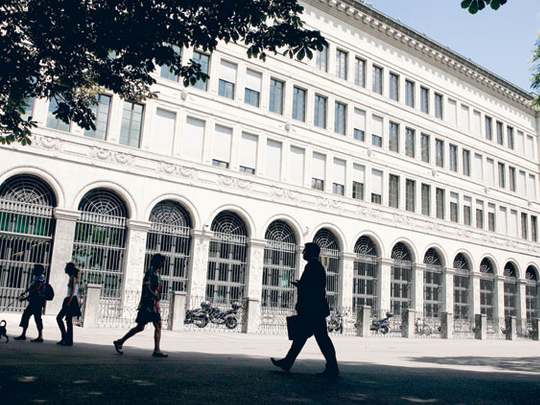
London : The euro zone's dominant services sector continued to expand in January, although at a much slower pace than expected, while the manufacturing sector grew at its fastest pace in nearly two years, key surveys showed yesterday.
Markit's Eurozone Flash Services Purchasing Managers Index, made up of surveys from around 2,000 businesses ranging from banks to cafes, dropped to 52.3 in January from December's 25-month high of 53.6.
That does mark the fifth month the index has been above the 50.0 mark that divides growth from contraction but was well below economists expectations for it to be at 53.9.
Worrying
"Weather in parts of the region would have disrupted business [but] it is worrying to some extent that the service sector is not showing the strength that we had been hoping for," said Chris Williamson at data provider Markit.
The euro zone economy returned to growth last year, with a quarterly expansion of 0.4 per cent in the third quarter, after five consecutive quarters of shrinking output in the bloc's worst downturn on record.
Williamson said the January reading was the same as the average for the fourth quarter of last year — which was the best quarter for two years and suggests growth of 0.4 per cent.
The European Central Bank has slashed interest rates, purchased covered bonds in the open market and offered unlimited funds for banks as part of its drive to kick-start the economy and analysts don't see them raising rates from their record low until October at the earliest.
Despite the downturn in the rate of expansion businesses remained optimistic, with the service sector's business expectations index jumping to 68.2 this month from December's 65.7, just shy of September's three-and-a-half year high.
The euro zone manufacturing sector grew at its fastest pace in 22 months. The flash manufacturing index rose to 52.0 in January from 51.6 last month, beating forecasts for 51.8.
While the situation in the manufacturing sector is improving firms across the euro zone continue to shed jobs to cut costs and boost profitability.












